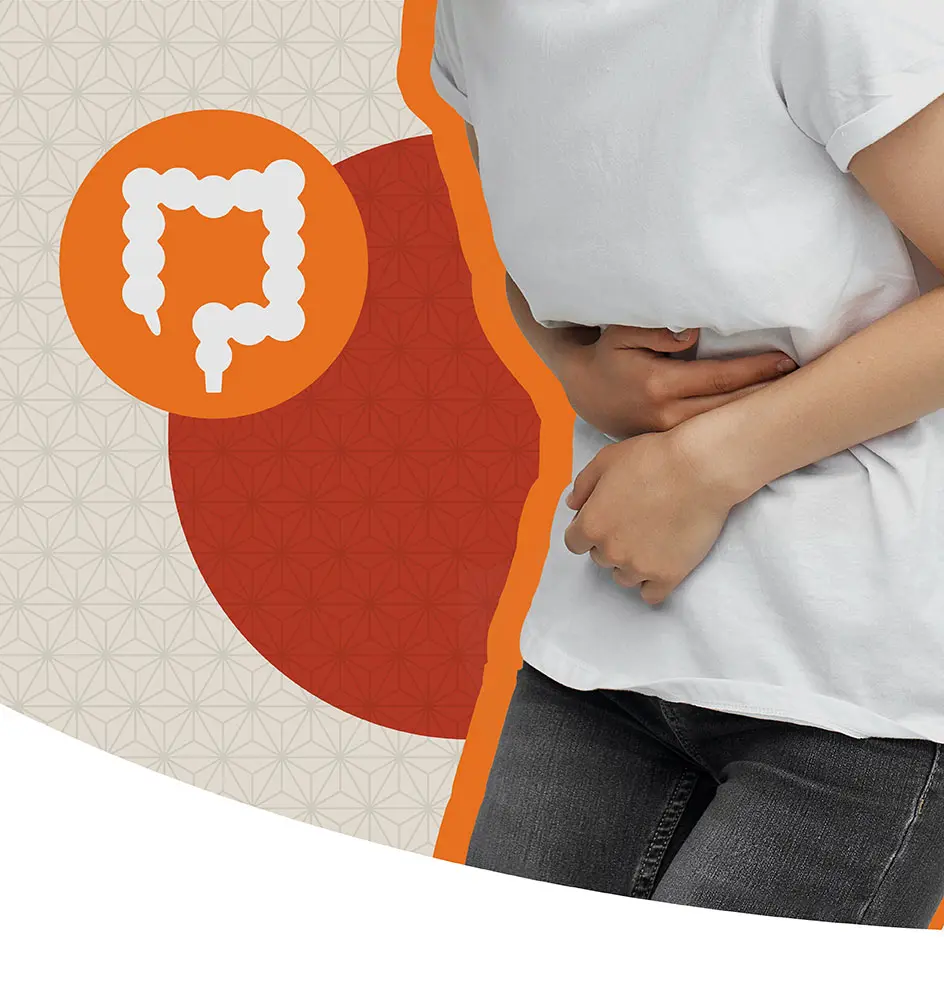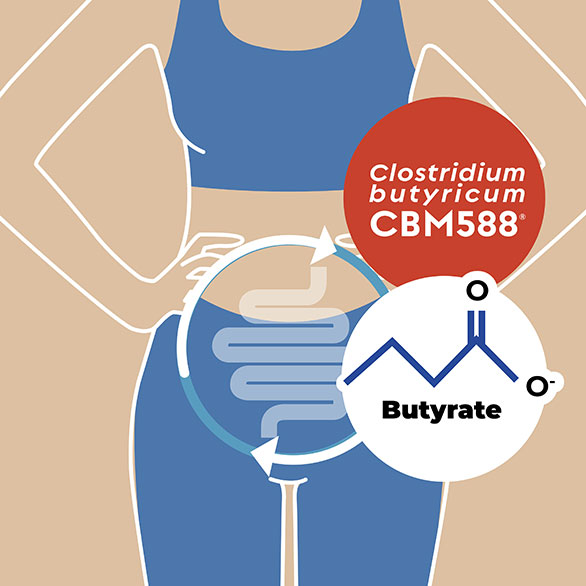IRRITABLE BOWEL SYNDROME
IBS-D or irritable bowel syndrome with prevalent diarrhea

Irritable Bowel Syndrome, commonly known as IBS is one of the most common bowel problems, affecting about 15-20% of the population and usually affecting twice as many women as men.
It is a condition characterized by intestinal pain and/or discomfort generally associated with changes in bowel habits, the causes of which may be varied and difficult to identify. It must certainly be considered that intestinal activity is intimately and directly linked to the brain and emotional states; therefore, the causes of IBS may certainly include a psychological component.
However, like all syndromes, IBS presents itself as a complex of symptoms that vary from patient to patient. For a correct diagnosis of IBS, reference is generally made to the guidelines known as the ‘Rome criteria’ drawn up by the Rome foundation, an international non-profit academic research organization that for almost 20 years has been collecting data and providing educational support to improve the diagnosis and treatment of Functional Gastrointestinal Disorders.
According to these guidelines, IBS has to be diagnosed when abdominal pain or discomfort is present for at least one day per week in the last three months, associated with two or more of the following:
- Relief after evacuation
- Change in the frequency of evacuations
- Change in stool appearance
If these symptoms are associated with ‘alarm bells’ such as blood in the stools or pain that is not relieved after evacuation, it is advisable to carry out more in-depth analyses to assess the presence of chronic intestinal inflammation, also referred to as IBD.
The most prevalent subtype of IBS, according to the scientific literature, is the so-called IBS- D, i.e. Irritable Bowel Syndrome with diarrhea, characterised by soft, unformed stools in more than 25 per cent of defecations.




